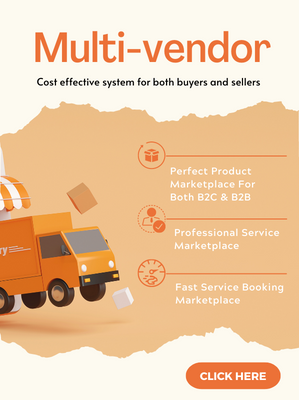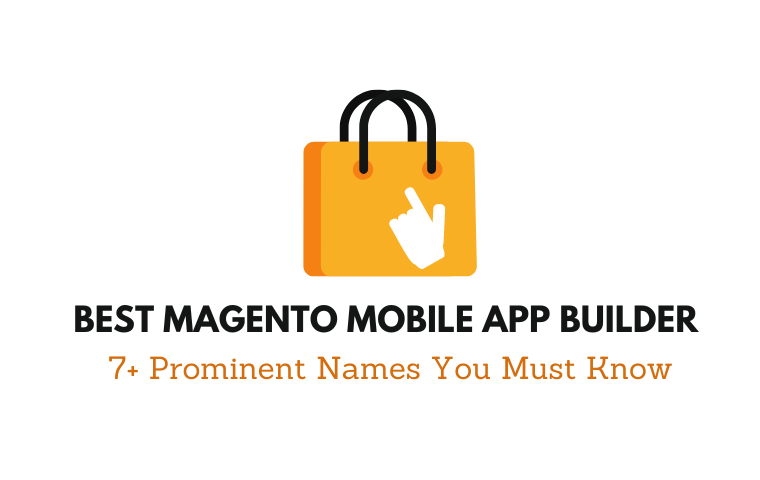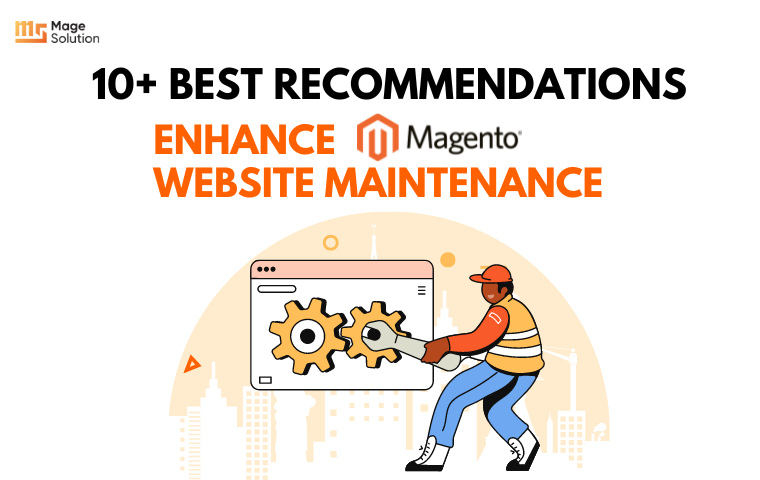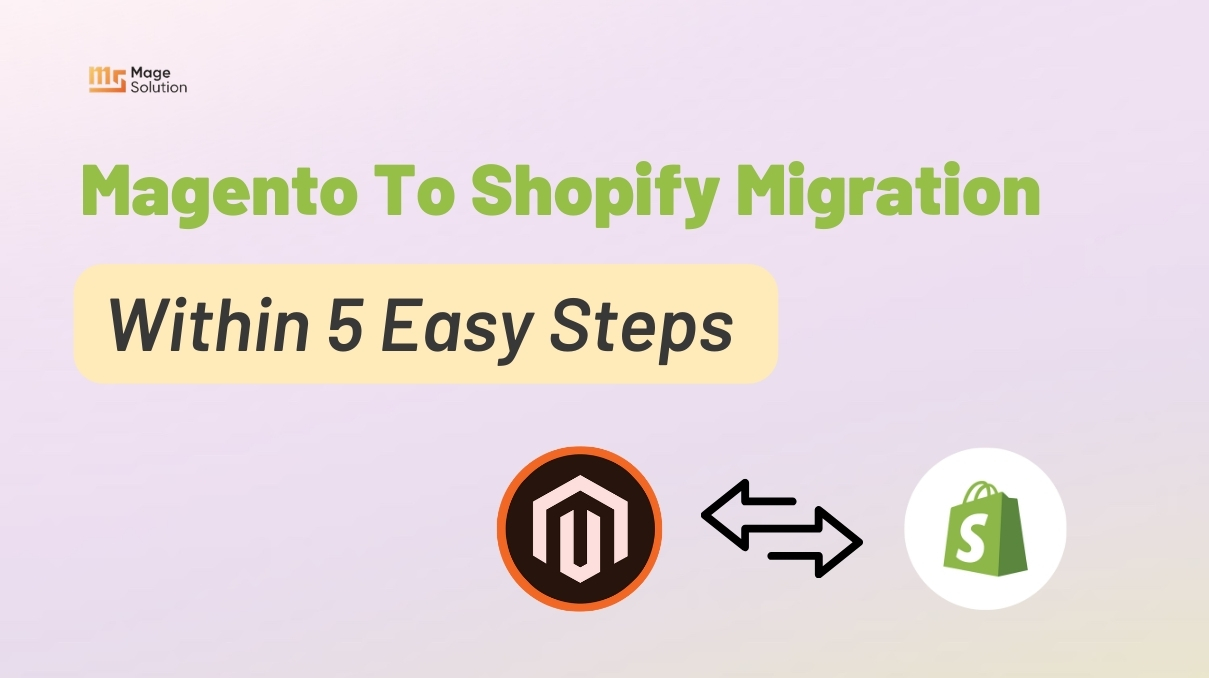Magento is still a popular choice when the business comes to operating an online store. It brings lots of advantages but also creates competition between companies. Each business wants to gain opportunities to boost its revenues and broaden the market. Then to operate effectively, a third party will be a helpful assistant. Therefore, in this article, we will introduce to you an excellent solution for your business: Magento Netsuite integration. Let’s find out what features of Magento Netsuite integration can benefit your online store through this analytics.

Some important information you should know about Netsuite
Then the first question you can ask: what is Netsuite?
NetSuite is a software startup that has created a cloud-based business management platform. Over 29,000 fast-growing businesses around the world are using this platform. NetSuite comprises a set of applications. It will assist firms in running their operations, understanding their performance, and achieving significant efficiency and cost savings.
Customers pay a subscription fee to access the technology, but they aren’t responsible for underlying infrastructure or system maintenance. For example, it can be purchasing and setting up servers, installing software, or testing and deploying patches and upgrades. It happens because of the software as a service (SaaS) model. With two major software updates per year, Oracle NetSuite takes care of everything for customers.
Many businesses are going to the cloud to offer their business systems then cutting costs and improving their competitiveness.
The highline features of Netsuite

NetSuite, the #1 Cloud ERP, is a cloud-based financials / Enterprise Resource Planning (ERP) and omnichannel commerce software suite. It powers the businesses of over 18,000 customers in over 200 countries and territories. Then NetSuite has the following capabilities:
- Accounting, inventory, supply chain, and order management are a few of the main financial business activities that NetSuite ERP manages.
- NetSuite is the only on-demand CRM system providing you with a genuine 360-degree picture of your customers.
- Professional services automation (PSA) – NetSuite PSA enables you to plan, track, and execute projects with precision.
- One database, one system – a real-time, unified global company management platform that allows you to manage operations across different nations, currencies, languages, and subsidiaries.
- E-commerce – From point of sale and order administration to marketing, merchandising, inventory, financials, and support, e-commerce unifies all aspects of your online store.
- Retail – NetSuite provides a robust cloud-based retail software solution that caters to your omnichannel customers.
- Manufacturing – With NetSuite’s manufacturing solution, you can focus on delivering products and services while getting the agility you need for scalable growth.
>>> Read more : The comprehensive guide about Magento ERP integration
A brief about Magento
Magento is a platform with built-in PHP, which helps programmers create eCommerce websites. It was released on March 31, 2008, by Varien and developed on Zend Framework.
In 2018, Adobe acquired Magento at a price of $1.68 billion to complete its commerce loop. Magento supports selling physical, digital, and downloadable products or services.
Magento is an open-source eCommerce platform featuring order management, business intelligence, and shipping. Popular Magento integrations include file ERP, finance, and payment applications.
Understanding the Need for Magento NetSuite Integration
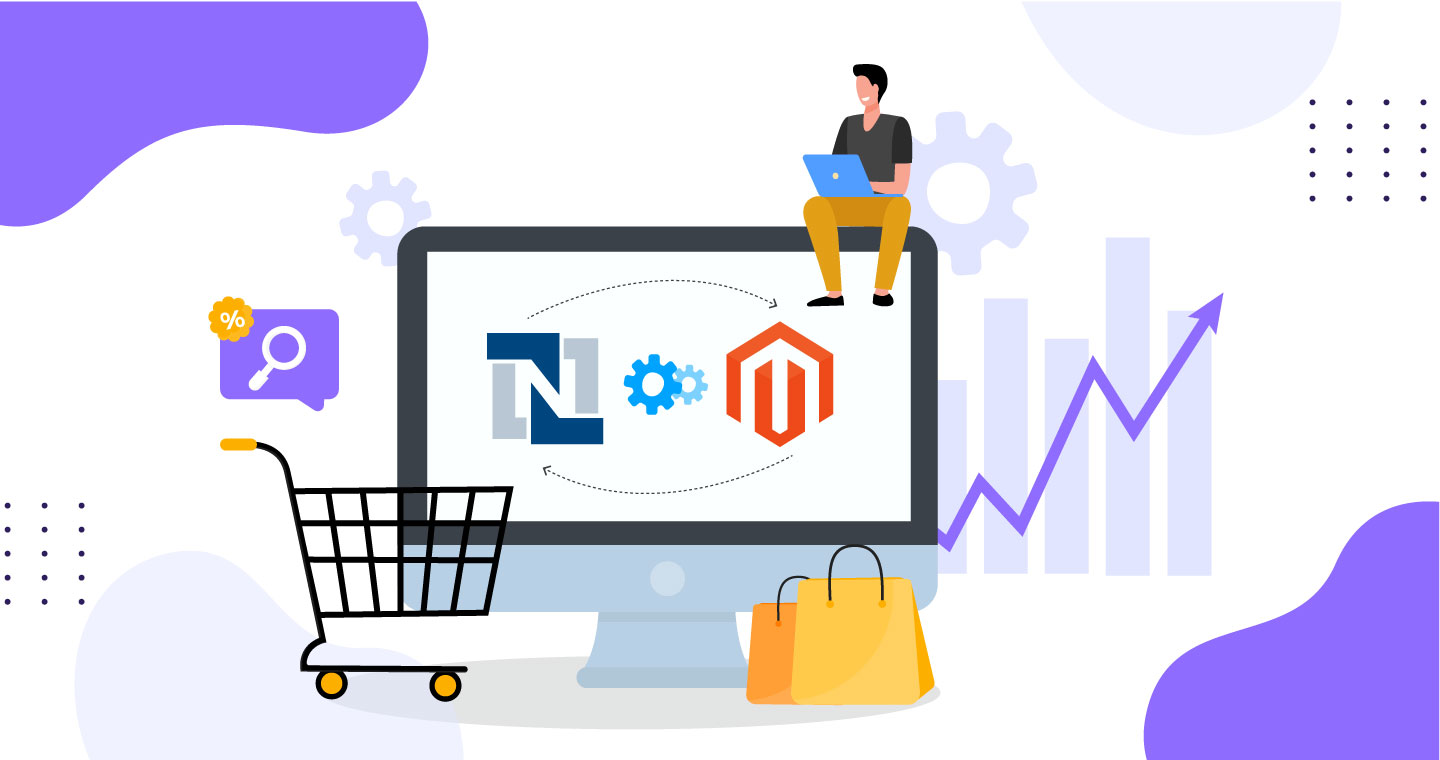
System Integration projects are said to be prone to cost overruns, delays, and other errors. In the case of a Magento NetSuite Integration, however, this is not happening because the integration can work seamlessly. The following are some of the advantages that this integration can provide:
A More Comprehensive View of Customers: Magento(Adobe Commerce) will be able to approach customer data in NetSuite as a result of the integration. Instantly, Customer purchasing history, order status, and other information. This means you’ll be able to see all of your customers’ interactions with your brand in one location.
Better View of Business Operations: A Magento NetSuite Integration will provide NetSuite access to the data from your online transactions, giving you a better view of your business operations.
Accurate Product Information: Following the integration, your online Magento(Adobe Commerce) store will only show the products that are currently available, together with their prices. Customers will not order things that are out of stock in this manner. At the same time, no customer will be charged for a product at the incorrect price.
Processes that are less manual: The integration will assist you in automating activities such as fulfillment and inventory replenishing. It will get rid of the demand to manually enter data in order to synchronize the systems.
How to Choose an Integration Approach for Magento to NetSuite
Magento NetSuite Integration is difficult, especially when you’re a B2B seller with complicated operations and large amounts of data. If integration lets you keep utilizing your best-of-breed platforms, automating data flows between two systems that weren’t designed to “speak” to one another is a challenge. Magento, for example, organizes and uses product data in a very different way than NetSuite does as an ERP.
The goal of integration is to create a relationship that bridges the gap between systems based on your company’s needs. The cost and duration of integration projects may appear daunting. However, don’t let your fear of integration prevent you from growing your organization! It’s simply a matter of getting to know your organization and selecting an integration strategy that best matches your needs.
When picking an integration technique for your program (in addition to looking at specific solution characteristics), keep the following in mind:
Customizations: How difficult are your business processes to customize? Do you have any proprietary (one-of-a-kind) needs that will necessitate custom solutions?
Data Volume: What is your company’s projected growth rate? Will you require a system that can handle an increasing number of orders, customers, items, and so on?
Customers: Are you a B2C, B2B, or B2G (business to government) seller, or do you sell all three?
Supplier Integration: Are you a partner with a supplier associate who requires order splitting and complicated order fulfillment workflows?
Technical Resources: Do you have any internal or external technical resources, such as an IT specialist or a NetSuite implementer, to assist with the project? Do you have to fend for yourself?
Budget: What can you afford in terms of the return on your investment?
Methods to Set Up Magento NetSuite Integrations

There are three options for Magento NetSuite integration. Let’s discuss them:
Method 1: Point-to-Point Integration
Point-to-point integration between Magento(Adobe Commerce) and NetSuite is available from a variety of suppliers. The two platforms are brought together in this type of solution to synchronize data such as orders, inventory counts, customers, and items.
The data is exchanged between the two systems without the usage of a platform, same as it is between Magento(Adobe Commerce) and NetSuite. The data will be synced in batches, which can happen once or twice a day or every hour.
When you check for NetSuite on Magento’s Marketplace, you’ll find some connectors that can assist you with this type of integration.
Small enterprises with no intentions for major development can benefit from point-to-point integration.
This strategy, however, has a number of drawbacks for developing retailers. It lacks flexibility when it comes to adding management tools like sales channels as the company grows. Because the Magento NetSuite Integration only allows for a 1:1 interaction between each system, growth requires fully redesigning your business.
Method 2: Custom Magento NetSuite Integration
Some sellers may rather build their own proprietary integration. They write bespoke code that connects the systems using the APIs provided for Magento(Adobe Commerce) and NetSuite. Custom integration initiatives are usually done in-house or by a third-party vendor like an ERP consultant or an eCommerce firm.
Magento NetSuite Integration that relies on custom code necessitates a thorough understanding of both systems in order to understand how they communicate and receive data.
When a company needs proprietary or custom adjustments to Magento(Adobe Commerce) or NetSuite to help with activities like complex order fulfillment logic or stock-keeping unit (SKU) administration, custom integration is required.
For firms without a strong technological foundation, however, it may be a costly and difficult option. As a result, some companies may find that a different technique is more cost-effective and easier in the long term.
Method 3: Saas-Based Integration Platform
The usage of a SaaS-based Integration platform is the third way to Magento NetSuite Integration. Data flow between the two platforms is simplified through a cloud-based integration platform.
Connectors for Magento(Adobe Commerce) and NetSuite, as well as any other platform you might want to integrate later, will be used by the platform. Faster implementations can come true thanks to Pre-built integration. However, unlike point-to-point connectivity, you can tailor these connectors to match your specific business needs. Merchants can also create rules that describe how data moves between systems and give them control over their data.
They can, for example, create rules that specify how to complete a single order via distinctive fulfillment locations for each line item in the order, based on the cost and location of the warehouse. During order processing, these processes will occur automatically.
Because they provide more comprehensive capabilities, SaaS-based Magento NetSuite Integration solutions are more expensive than point-to-point solutions. They are, nonetheless, less costly than custom integration solutions. The sellers may be asked to pay a monthly subscription charge as well as an implementation fee to cover the costs of customizing the connector to meet your requirements. The monthly subscription cost will also cover the maintenance and integration of the connectors throughout time.
Benefits your business will earn from Magento Netsuite integration

The purpose of Magento NetSuite integration is to make your data work for you in previously unimaginable ways. The following are some of the advantages of integrating Magento Commerce ERP:
Connect data from all sides of your eCommerce business in real-time.
By having all of your data synced in real-time, you can better support data management, improve your decision-making processes, and create higher-quality user experiences.
For enhanced visibility, match data across your channels.
Diminish inventory expenses to boost cash flow, and use ERP data to display correctly, the real-time inventory on your customer-facing website to boost consumer confidence.
Share order information with clients in a proactive manner.
Improve client experiences by informing them on demand — or even before they ask — about the status of their purchase or the current location of their shipment.
Use high-level reporting and data segmentation to your advantage.
Take data out of silos and put it to work identifying key performance indicators (KPIs) and putting data analysis processes in place to boost revenue and retention.
Follow your consumers from the beginning until the moment they get their order.
Gain total visibility into your sales process across all channels, detect bottlenecks, and devise strategies to keep the sales process on track and retarget customers as needed.
Reduce the number of redundancies and errors caused by human data entering.
Set triggers that cause workflows to start and populate confirmed data when a customer takes the desired action to automate and increase accuracy.
Self-service solutions should be used to push FAQs and easy questions.
Improve the overall user experience (UX) and free up your customer service employees to deal with issues that aren’t resolved through automated channel support.
Improve speed dramatically
It will aid in the reduction of the business cycle, giving your organization a healthy competitive advantage. Magento data is immediately available for use with other internal applications, such as your customer relationship management system (CRM)
Improve operational efficiency
Besides the benefits above, your company can benefit in other ways. Increase trading partner connections through improving supply chain management efficiencies, for example.
Conclusion
Through this article, we give you a clear picture of the Magento NetSuite integration. With the outstanding functionality, NetSuite is definitely a third-party worth for your business to jump in. In the competitive environment, to beat the competitor, your company needs to understand not only the market but also customers. Thanks to Magento NetSuite integration, it will assist you in deriving insights from data created by your goods, processes, and customers in order to make better decisions. However, if you meet difficulty catching up with this trend, don’t hesitate to contact the third company. With many experiences in this field, we are confident to provide the best service: Magento third-party integration. Therefore, if you have any questions, contact us to have more information.
